Middle East
Palestinian children face starvation under Israel’s total Gaza blockade | Israel-Palestine conflict News
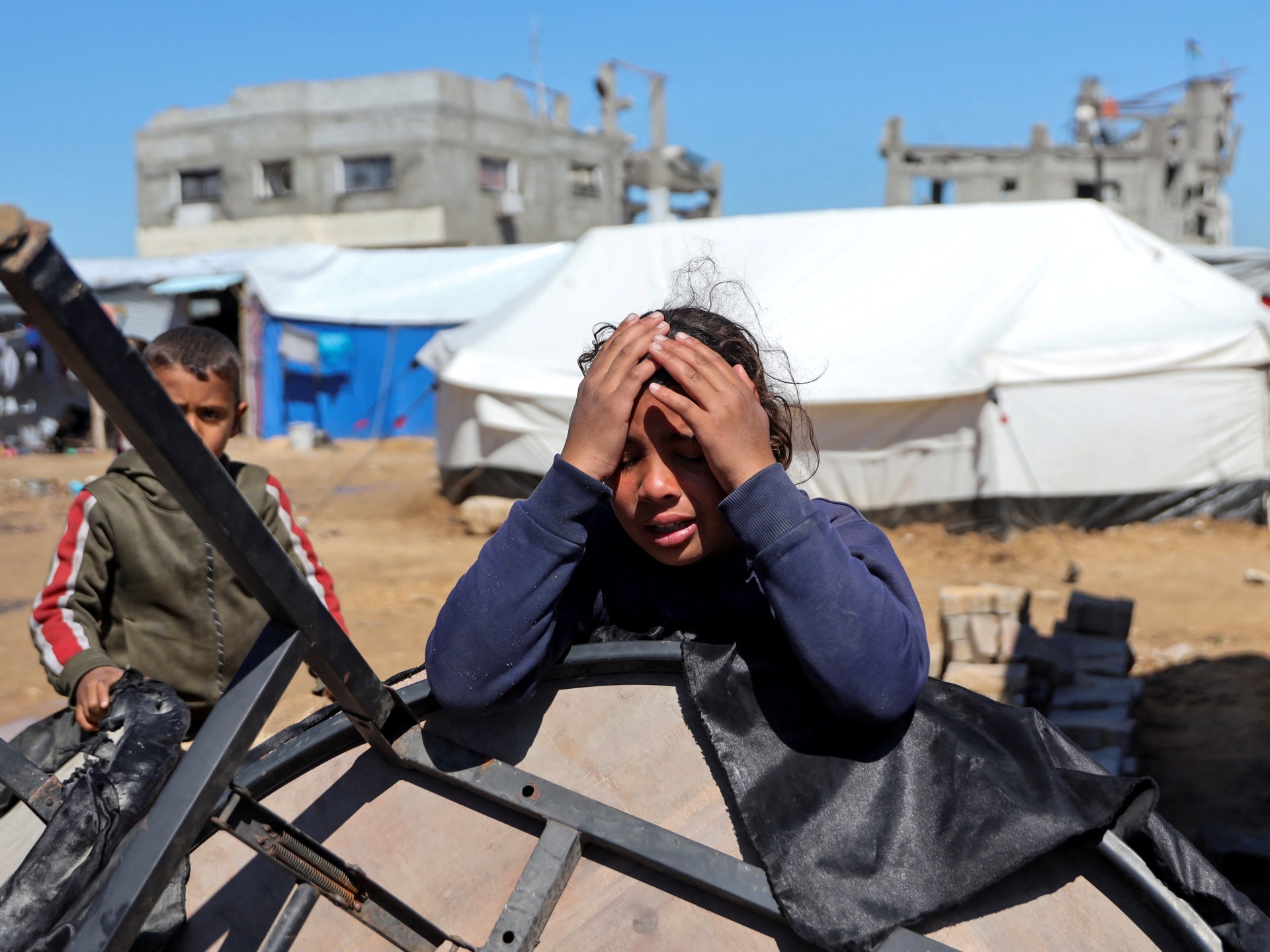
UNICEF says children face ‘growing risk of starvation, illness and death’ as Israel bars food and other aid deliveries.
Thousands of Palestinian children in the Gaza Strip are facing an increased threat of starvation, the United Nations has warned, as Israel’s continued blockade of food, water and other critical supplies to the besieged and bombarded coastal territory enters its third month.
The UN’s child rights agency (UNICEF) said on Friday that more than 9,000 children had been admitted for treatment for acute malnutrition since the start of the year.
But the situation has worsened since Israel imposed a total blockade on the Palestinian enclave in early March.
“For two months, children in the Gaza Strip have faced relentless bombardments while being deprived of essential goods, services and lifesaving care,” UNICEF Executive Director Catherine Russell said in a statement.
“With each passing day of the aid blockade, they face the growing risk of starvation, illness and death – nothing can justify this.”
Israel has blocked all humanitarian assistance from reaching Palestinians in Gaza since March 2, spurring international condemnation.
The UN’s World Food Programme said last week that its food supplies had been “depleted” amid the siege, warning that community kitchens upon which thousands of Palestinians rely would be forced to close.
“We don’t ask if food is nutritious or not, if it’s fresh or good; that’s a luxury, we just want to fill the stomachs of our children,” a displaced Palestinian parent recently told Amnesty International about the crisis. “I don’t want my child to die hungry.”
The Israeli government has said its blockade is intended to put pressure on Palestinian group Hamas to release captives held in Gaza. But it has not led to any more releases since the fleeting ceasefire earlier this year, which saw Palestinian prisoners exchanged for Israeli captives.
Meanwhile, Hamas official Abdel Rahman Shadid on Friday accused Israel of using starvation as a “deliberate weapon of war” against Palestinians.
“Children are dying from the lack of milk, not just from bombs,” Shadid said in a statement published on the group’s Telegram channel.
Legal experts and human rights groups have noted that, as an occupying power, Israel has an obligation under international law to provide food and other assistance to Palestinians in the Gaza Strip.
They have condemned the blockade as a violation of the Fourth Geneva Convention.
Hundreds of thousands of Palestinians of all ages are experiencing high levels of food insecurity in Gaza, according to the Integrated Food Security Phase Classification (IPC) system, a global hunger watchdog.
Amjad Shawa, director of the Palestinian NGOs Network, told Al Jazeera that the situation is worsening quickly as health facilities lack the supplies needed to treat children grappling with malnutrition.
“We have no food supplies or supplementary materials or medications for these children,” Shawa told Al Jazeera from Gaza City. “There is high concern that we will witness more casualties in the coming few days,” he added.
At Kamal Adwan Hospital in Beit Lahiya, in northern Gaza, Dr Ahmed Abu Nasir said the situation has become worse than ever due to the blockade.
“Children are in their growing stage and badly need certain nutrients, including proteins and fats,” the paediatrician told Al Jazeera. “These are not available in the Gaza Strip, particularly in the north.”
More than 52,400 Palestinians have been killed since Israel’s war on Gaza began in October 2023, according to figures from the Gaza Health Ministry.
Middle East
Israelis protest for captives, against Netanyahu’s Gaza war expansion | Israel-Palestine conflict News
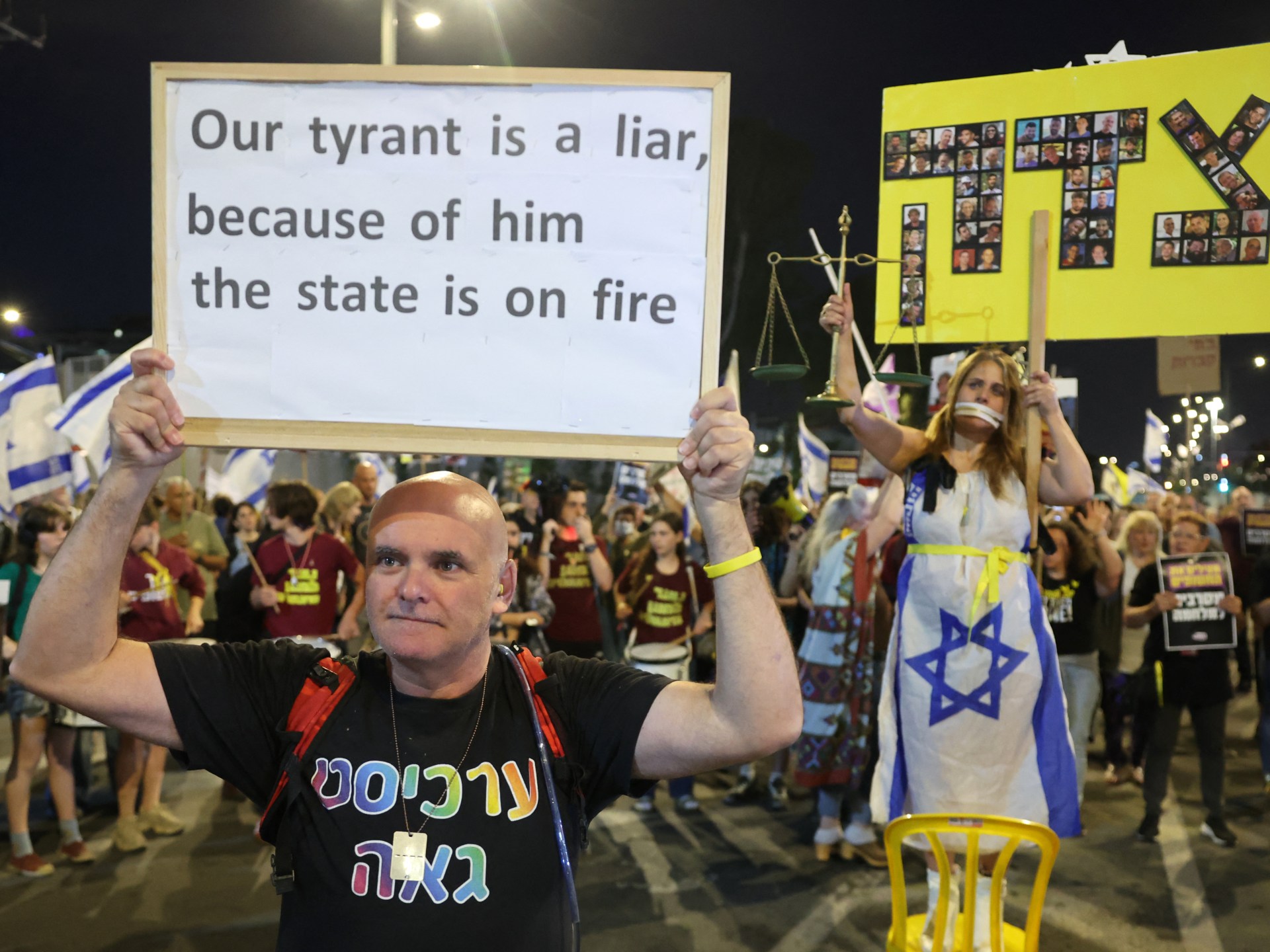
Thousands of Israelis have gathered outside the Ministry of Defence in Tel Aviv, urging the government to prioritise the release of captives still held in Gaza instead of escalating military operations in the Palestinian territory.
The demonstration on Saturday was held as Prime Minister Benjamin Netanyahu’s government authorised the mobilisation of up to 60,000 reserve troops, signalling plans to intensify its assault on the besieged Palestinian enclave.
One protester held aloft a placard castigating Netanyahu that read, “our tyrant is a liar, because of him the state is on fire”.
Government officials claim an expanded military offensive on Gaza will pressure Hamas into releasing the 59 remaining captives, but critics argue it further endangers their lives. Ending the fleeting ceasefire, which saw Palestinian prisoners exchanged for Israeli captives earlier this year, has not led to any more releases.
A video circulated by Hamas on Saturday purported to show one of the Israeli captives, whom local media identified as Maxim Herkin. In the four-minute video posted online, Herkin is seen being rescued by Hamas members after an Israeli attack struck a tunnel, burying and injuring the Israeli captive.
Families of the captives released a statement saying they spent the Sabbath gripped by “excruciating anxiety” after news of the government’s planned escalation and the effect it could have on those still held in Gaza.
The Bring Them Home Campaign, a group representing the relatives, condemned the move as reckless.
“Israel is on its way to sinking into the Gaza mud in the name of the illusion that it is possible to achieve any victory without returning our brothers and sisters from captivity,” the group said in a post on X. “Expanding the fighting will endanger the kidnapped, the living and the dead alike.”
They urged Netanyahu to abandon the offensive and instead reach an agreement that would secure the captives’ return. “Stop this mistake,” the group said.
‘Protests not enough to influence Netanyahu’
Speaking to Al Jazeera, Israeli journalist Gideon Levy said the protest movement remains consistent, but lacks the momentum to challenge Netanyahu’s coalition. “It’s the same old protest, very courageous and devoted, but not big enough to influence Netanyahu,” Levy said.
He noted that a large segment of Israeli society continues to support the war effort, even amid rising frustration from the captives’ families, and that “when [Israelis] are called to war, they will obey.”
Netanyahu, speaking Thursday at a public event in Jerusalem, seemed to suggest that defeating Hamas remains Israel’s top priority instead of the release of captives. “We want to bring all our hostages home,” he said. “The war has a supreme goal, and the supreme goal is victory over our enemies, and this we will achieve.”
Captives’ families have accused Netanyahu of undermining previous attempts to reach a truce and swap deal. Some believe his refusal to compromise reflects political motives, aimed at ensuring the survival of his far-right coalition government, rather than genuine concern for the captives.
Middle East
Iran reasserts uranium enrichment rights as further US talks delayed | Nuclear Energy News
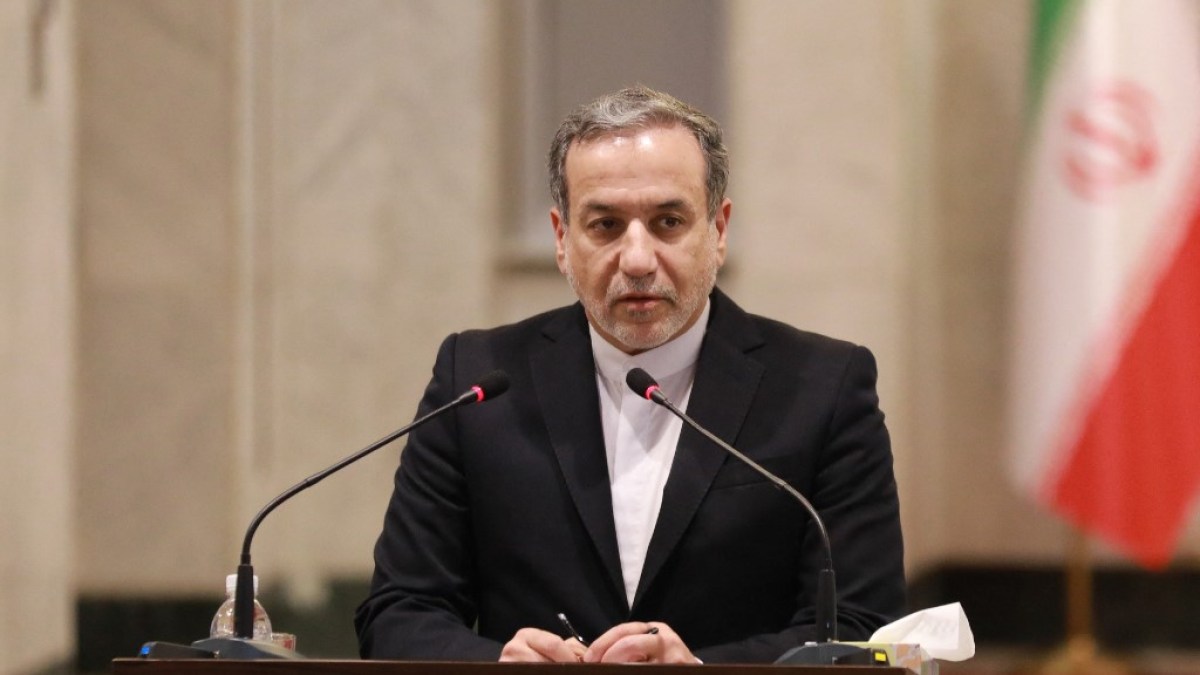
Foreign Minister Araghchi insists Iran’s nuclear activities are civilian in nature.
Iran has defended its right to enrich uranium, doubling down on a long-held stance as the next round of nuclear negotiations with the United States in Oman were abruptly delayed.
Foreign Minister Abbas Araghchi took to social media on Saturday to declare, “Iran has every right to possess the full nuclear fuel cycle,” referencing the country’s membership in the Nuclear Non-Proliferation Treaty (NPT).
He added, “There are several NPT members which enrich uranium while wholly rejecting nuclear weapons,” underlining Iran’s argument that its nuclear activities are civilian in nature.
“Maximalist positioning and incendiary rhetoric achieve nothing except eroding the chances of success,” added Araghchi, in reference to the US position that Iran must stop all enrichment activities.
In a Thursday interview with Fox News, US Secretary of State Marco Rubio urged Iran to halt its enrichment efforts, arguing, “the only countries in the world that enrich uranium are the ones that have nuclear weapons.” However, countries like Germany, Japan and Brazil also conduct enrichment without possessing nuclear arsenals.
The comments come after a fourth round of indirect talks between Washington and Tehran, originally scheduled for Saturday, was postponed.
I generally refrain from airing arguments on key negotiation elements through the media.
What I will say is that repeating falsehoods will not change basic facts. As a founding signatory to the NPT, Iran has every right to possess the full nuclear fuel cycle. Moreover, there…
— Seyed Abbas Araghchi (@araghchi) May 2, 2025
Oman, acting as a mediator, cited “logistical reasons” for the delay. A new date remains unconfirmed, with one Iranian official telling the Reuters news agency it would depend on “the US approach”.
The setback follows a new wave of US sanctions tied to Iran’s oil sales and alleged continued support for Yemen’s Houthi rebels. Tehran responded by accusing Washington of sending “contradictory messages” that undermined diplomacy.
France added to the uncertainty earlier this week when Foreign Minister Jean-Noel Barrot claimed Iran was “on the verge of acquiring nuclear weapons” – a charge Tehran dismissed as “simply absurd”.
Iran, which insists it does not seek a bomb, has consistently maintained its nuclear programme complies with IAEA oversight.
Araghchi reiterated that Iran’s right to enrich was “non-negotiable”, even as IAEA chief Rafael Grossi suggested on Wednesday that any enriched material in Iran could be either dissolved or exported if a deal were reached.
The diplomatic deadlock comes as global powers weigh whether meaningful progress can still be achieved on reviving the 2015 nuclear deal brokered by world powers, which collapsed after the US, under the first Donald Trump presidential term, unilaterally abandoned it in 2018.
The 2015 deal, known as the Joint Comprehensive Plan of Action (JCPOA) saw Iran curtail its nuclear programme in exchange for sanctions relief.
Middle East
Dozens of Palestinians starved to death under Israel’s blockade of Gaza | Israel-Palestine conflict News
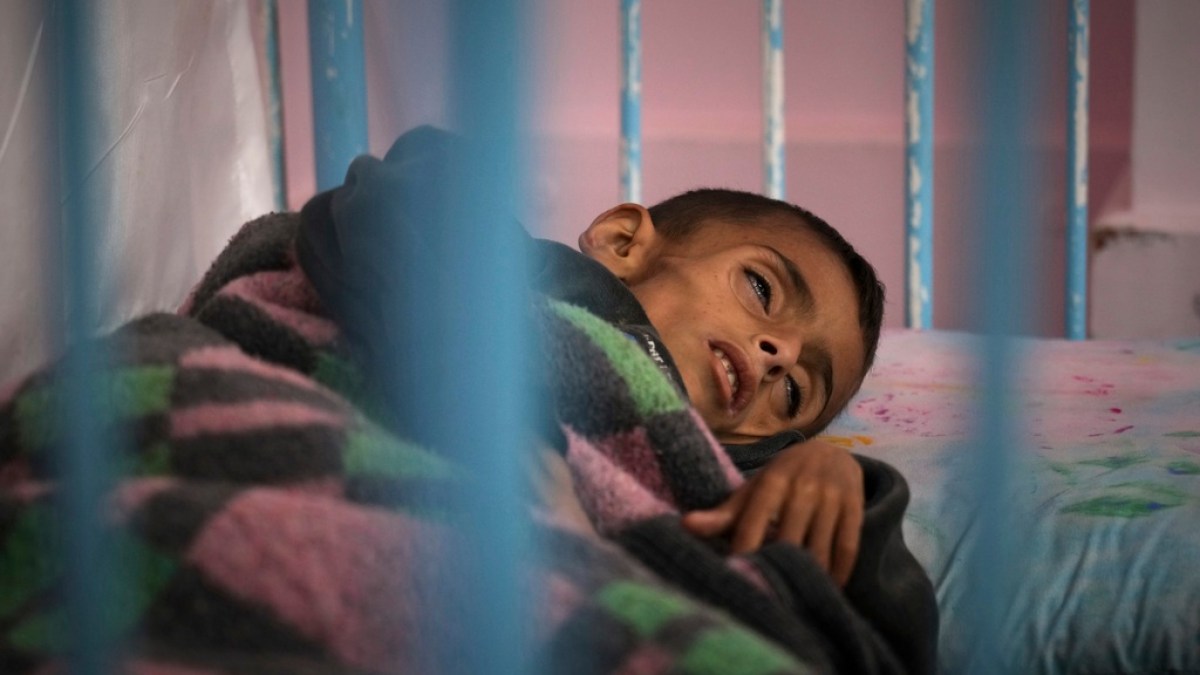
As trucks carrying vital supplies pile up at border with Egypt, hungry children look through rubbish for food.
At least 57 Palestinians have starved to death in Gaza as Israel’s punishing blockade of food, water, and other critical aid to the besieged enclave stretches into its third month amid relentless bombardment.
Gaza’s Government Media Office said on Saturday that most of the victims were children, as well as the sick and elderly, condemning the “continued use of food by the Israeli occupation as a weapon of war” and urging the international community to exert pressure on Israel to reopen the borders and allow in aid.
Gaza has been under total Israeli blockade since March 2, video obtained by Al Jazeera Arabic showing large numbers of trucks carrying vital supplies piling up on the border between Egypt and the Gaza Strip on Saturday, the queue extending south beyond the city of Arish, located approximately 45 kilometres (28 miles) from Rafah border crossing.
Al Jazeera’s team identified one of the latest victims on Saturday, a baby girl called Janan Saleh al-Sakafi, who died of malnutrition and dehydration in the Rantisi Hospital, west of Gaza City. More than 9,000 children have been admitted to hospital for treatment for acute malnutrition since the start of the year, according to the United Nations.
Reporting from Gaza City, Al Jazeera’s Hani Mahmoud said he had witnessed heartbreaking scenes of children rifling through rubbish, “looking for whatever is left of canned food products”. The enclave, he added, had reached a “critical” point with international organisations out of supplies and community kitchens unable to prepare meals for displaced people.
“Finding a single meal has become an impossible quest,” Ahmad al-Najjar, a displaced Palestinian in Gaza City, told Al Jazeera. “People here have witnessed one charity after another declaring they’re out of supplies, that they’re shutting down their operations because they’re in no position to … offer the population the needed relief.”
“It’s frustrating and infuriating to have trucks piling up on the other side of the fence be denied entrance while the people, even children, are in dire conditions.”
Hospitals face ‘acute shortages’
Suhaib al-Hams, the director of the Kuwaiti Hospital in Rafah, said in a statement that medical services were experiencing “acute shortages in more than 75 percent of essential medicines”, with only around a week of supplies left.
He warned that most of the enclave’s medical services will stop without “immediate intervention” to reopen borders and allow medical and humanitarian aid through. He added that patients, who are “slowly dying every day without treatment”, needed to be evacuated urgently.
The continued blockade is the longest such closure the Gaza Strip has ever faced, and has come as Israeli forces continue bombarding the territory, killing at least 70 Palestinians and wounding 275 others over the two days spanning Thursday to Saturday morning, according to the Health Ministry.

On Saturday, two women were killed in an Israeli air raid on a house in the town of al-Fakhari near Gaza’s southern city of Khan Younis, according to reports from Al Jazeera Arabic.
Separately, a fisherman was killed and another injured by an Israeli naval attack off the coast of Gaza City.
Later in the day, two Palestinians were killed in an Israeli drone attack on southern Gaza’s al-Mawasi area, once an Israeli-designated “safe zone”.
Israel’s war on Gaza has killed at least 52,495 people and wounded 118,366 since October 7, 2023, according to the Health Ministry. Thousands more missing under the rubble are presumed dead.
-

 Africa2 days ago
Africa2 days agoFear and uncertainty grip Haitian workers in Texas meatpacking plants amid immigration crackdown
-
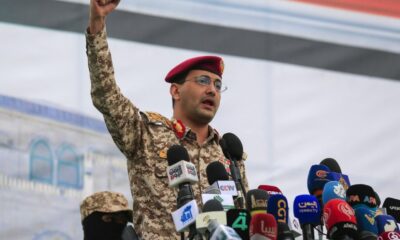
 Conflict Zones2 days ago
Conflict Zones2 days agoYemen’s Houthis launch missiles at Israel, army says it intercepts | Houthis News
-
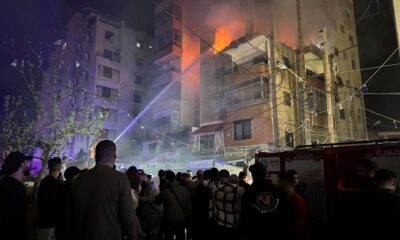
 Middle East2 days ago
Middle East2 days agoLebanon warns Hamas against attacks threatening nation’s security | Israel attacks Lebanon News
-

 Education2 days ago
Education2 days agoTrump says he will revoke Harvard’s tax-exempt status
-

 Sports2 days ago
Sports2 days agoCoco Gauff hands Iga Świątek one of the worst defeats of her career to reach Madrid Open final
-

 Europe2 days ago
Europe2 days agoPrince Harry says father, King Charles, no longer speaks to him but hopes to reconcile
-

 Sports2 days ago
Sports2 days agoGregg Popovich steps down as San Antonio Spurs head coach and is moving to team’s front office as president
-

 Europe2 days ago
Europe2 days agoAnalysis: US tariffs could make Europe ‘Great Again’ by lowering prices




